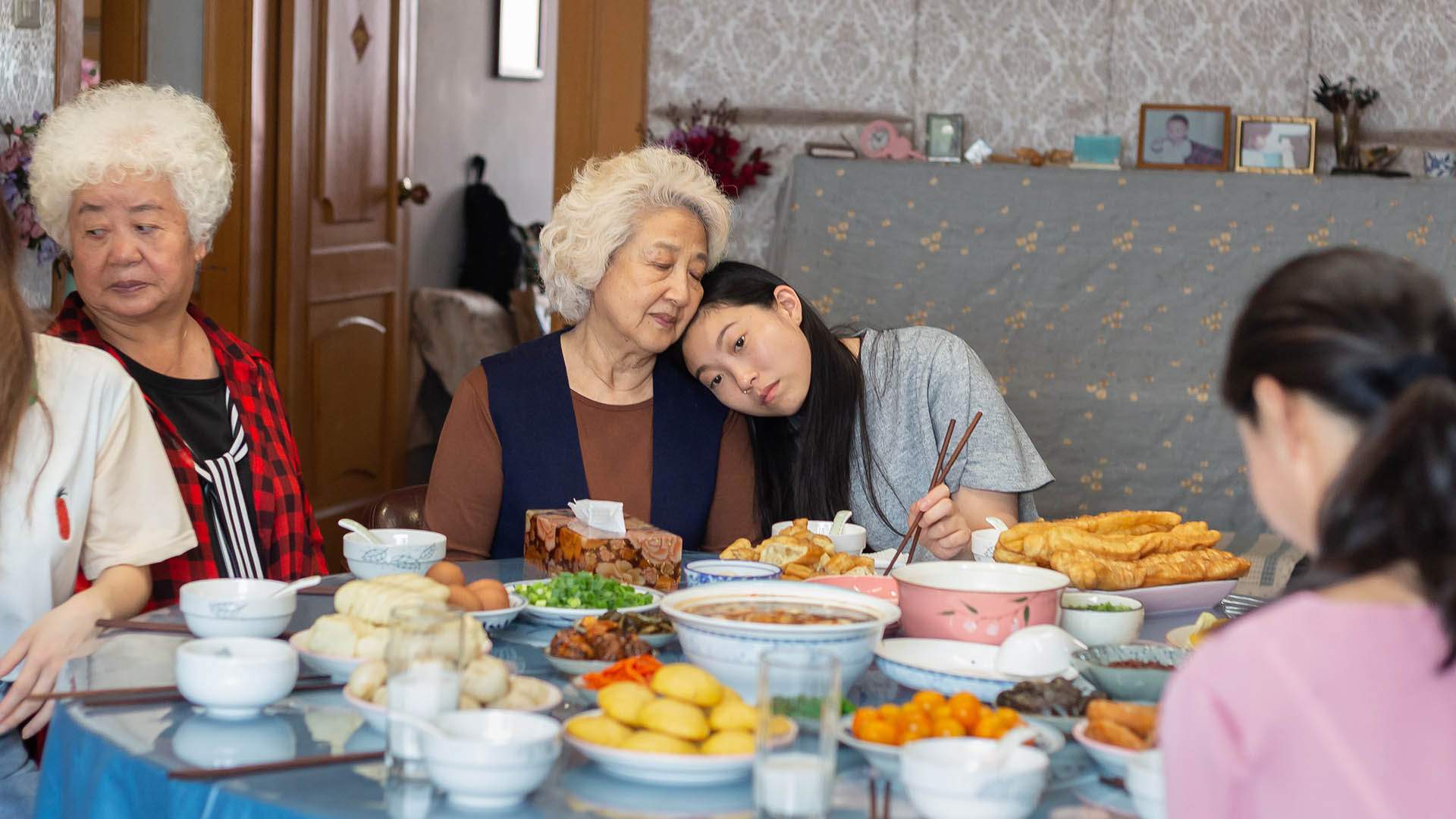The Farewell
Awkwafina stars in this nuanced and affecting drama, which charts a Chinese American woman's trip home to see her terminally ill grandmother.
Overview
UPDATE, July 9, 2021: The Farewell is available to stream via Netflix, Google Play, YouTube Movies, iTunes and Amazon Video.

Ask someone how'd they prefer to shuffle off this mortal coil, and you'll likely receive the most cliched of answers: to pass peacefully in their sleep. That's certainly better than any alternative (other than somehow managing to live forever), although it's rarely realistic. Still, if you could give a loved one that gift, sparing them the pain of knowing that the end was near, would you? If they were diagnosed with terminal cancer, had mere months or weeks left to live, and invasive medical treatment would only cloud their remaining days, is it better to let them carry on blissfully unaware? Whether such choices are tender mercies or rob one's nearest and dearest of the chance to say goodbye sits at the heart of The Farewell, a sensitive and stirring drama set within a culture where keeping impending death from the unwell is commonplace. Drawing deeply on her own experience, writer-director Lulu Wang also uses this complicated issue as fuel to contemplate identity, belonging, tradition and cultural displacement.
Born in China and raised in New York, Billi (Awkwafina) is firmly ensconced in the Big Apple. An aspiring writer, she's constantly hoping for grants to fund her work, is perennially behind on her rent and largely relies on credit cards to get by. But when her father Haiyan (Tzi Ma) and mother Jian (Diana Lin) deliver the news that her beloved paternal grandmother, Nai Nai (Zhao Shuzhen), has stage four lung cancer, Billi is determined to journey back to China — even when her parents advise her not to go. She's conflicted, however, about her family's decision not to tell their mentally spritely, physically ailing matriarch about her condition. Instead, they're all making the trip under an elaborate cover story, rushing Billi's cousin Hao Hao (Chen Han) to marry his Japanese girlfriend Aiko (Aoi Mizuhara). Such subterfuge is standard in her homeland ("when people get cancer, they die," the Chinese saying goes, referring to the impact such an illness can have on one's will to live), but it rubs against the western sensibilities that've been instilled in Billi since moving to America.
One of Wang's most affecting and astute moves, of which there are many, is to task her cast with conveying this moral and emotional dilemma in their every expression and movement. In an intuitive portrayal that's worlds away from her scene-stealing, over-the-top turn in last year's Crazy Rich Asians, Awkwafina lives, breathes and wears Billi's internal turmoil. When the character is plastering on the happiest face she can to hide the truth from Nai Nai, her hunched shoulders reveal her pain. When she's trying to have a quiet, genuine moment with the woman she knows will soon be gone — a vibrant, irrepressibly bossy old lady who bustles about like a near-unstoppable force of nature — sorrow lingers in her eyes. This isn't just Billi's burden, but one shared even by those who support the decision to keep Nai Nai in the dark, sparking stellar performances across the board. Guilt and regret seeps from recognisable Chinese American star Ma (Wu Assassins), playing the son who travelled across the globe to pursue a better life. Chinese Australian actor Lin (The Family Law) tussles with Jian's own difficulties, caught as she is between a crumbling husband and an angry daughter. And as Hao Hao, Han may barely utter more than a few sentences as he endeavours to contain his sadness, but he's always a tense ball of visible discomfort.
Favouring the same approach in all facets of the film, Wang styles The Farewell with naturalism at the fore. Dialogue flows freely, often from Nai Nai as she snaps out wedding plans and comments on Billi's appearance as a grandmother is known to, but a picture truly speaks a thousand words here. Collaborating with cinematographer Anna Franquesa Solano, the sophomore filmmaker tells her tale free from any rose-coloured fondness. This is a warm movie, however it steadfastly depicts its central situation, setting and struggle as they are. In practical terms, that means realism and nuance — Billi and her family exist within the film's Changchun locale, and its day-to-day minutiae is baked into every scene, and yet her visiting protagonist doesn't play tourist, for example. The same description applies to the movie's handling of its illness storyline, which is never squeezed for easy sentiment or used as weepie fodder. Wang also finds the right balance between organic humour and earnest emotion, never overstating one or the other — a tactic that particularly resonates when Billi begins to question the existence she was given in America, as well as the links to her broader family and heritage she feels it has robbed her of.
All of these choices reinforce The Farewell's takeaway message: that in life and death alike, there is no simple path. There are no clear-cut answers, either, including when you're tossing up whether to tell someone they're dying or keep that knowledge from them. Far from treating these notions as obvious, Wang navigates the many complexities that prove her point with a lived-in maturity. She has literally been there, seen that and emerged to tell the tale, after all. As a result, what could've been a straightforward tearjerker in other hands benefits from her personal and poignant touch, and never heads down the blatant route. This is a subtle, thoughtful and heartfelt film that serves up a continual array of surprises — the kind that can and do get thrown in everyone's way, because that's what grappling with life's ups, downs, comings and goings is like.





